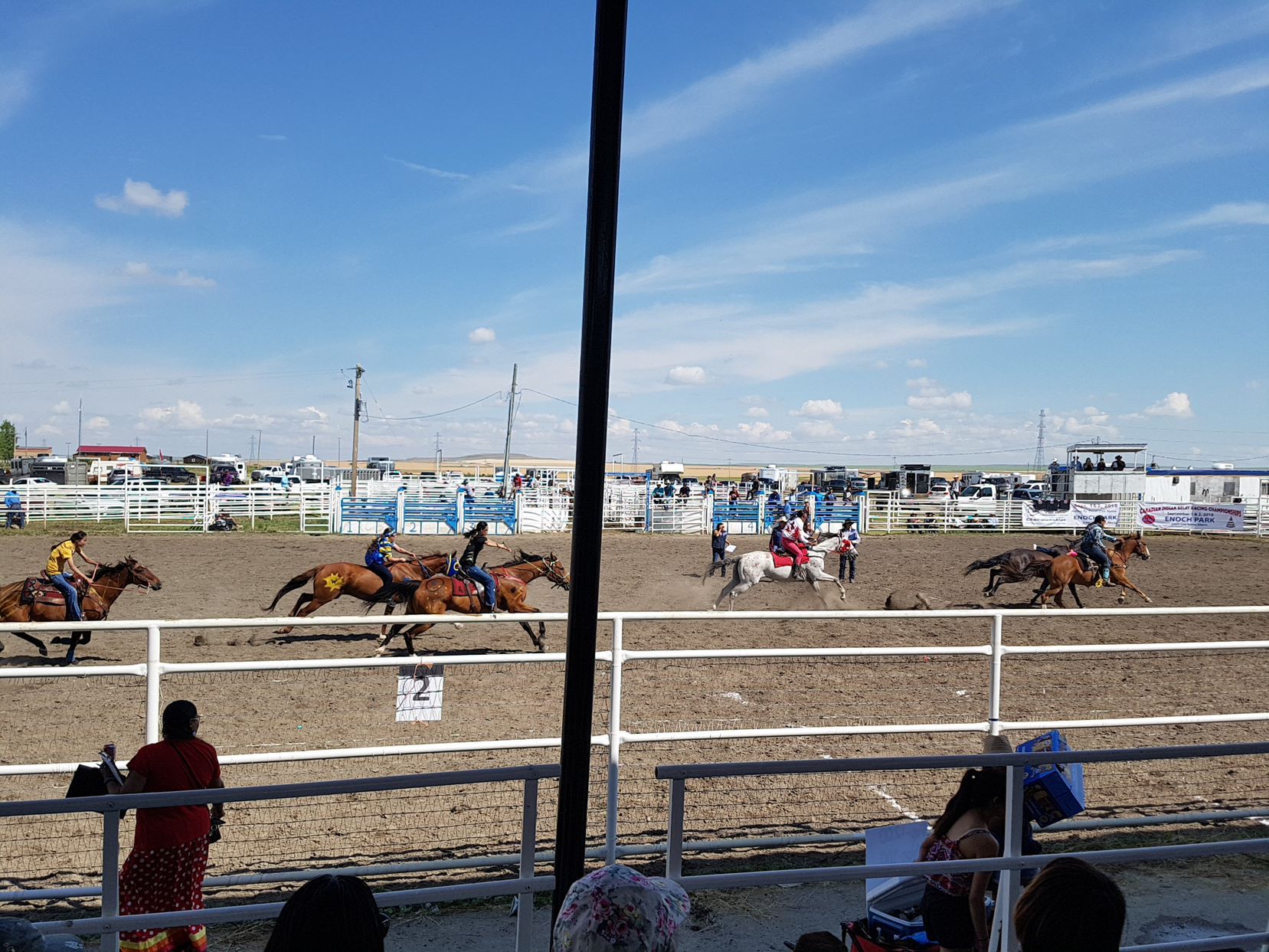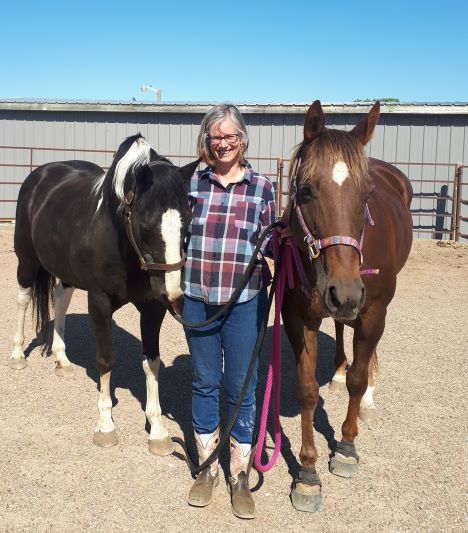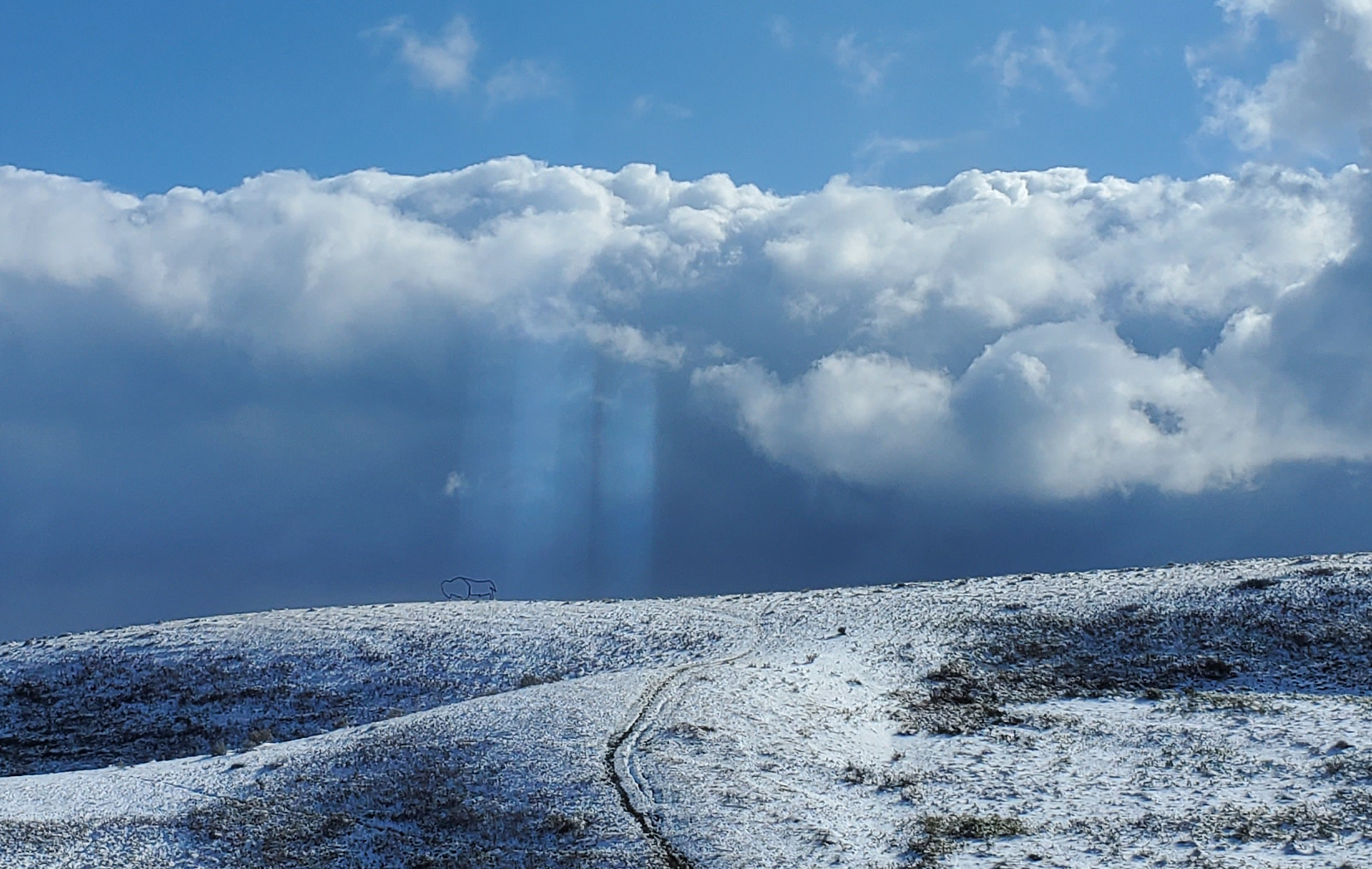Yesterday was the National Day for Truth and Reconciliation. The University of Lethbridge committed to a day of reflection for the University community, and had a week of activities to allow members of our campus community time and space to reflect on the tragic legacy of residential schools. You can read a statement by Dr. Leroy Little Bear (a Distinguished Niitsitapi Scholar) and Charles Weasel Head (Chancellor at uLethbridge) about their thoughts on Truth and Reconciliation.
Reflecting on our history and actively working on the Calls to Action set out by the Truth and Reconciliation Commission cannot be a once a year event, however. We connected with someone who, as part of her research, is addressing a Call to Action. Dr. Inge Genee is a linguist who works with the Blackfoot Language to help safeguard it for the future, and works with multiple collaborators on campus and within the Blackfoot community.
Hi Inge, pleasure to talk with you today. Share with us the focus of your work.
Well, this past summer I worked with my four student research assistants Alex, Megan, Mahaliah and Dominik on several projects related to Niitsi'powahsin, a.k.a. the Blackfoot language. One of our projects is called the Blackfoot Language Resources website. I am the director of this project and have been working on it since 2015. Our website has an online dictionary, a story archive, resource and grammar pages, and oral conversations. This summer we worked on the development of a mobile conversation app, which will be launched in October, and a proof-of-concept for a set of online language lessons that we will be piloting.
Another project we worked on relates to the Truth and Reconciliation Commission of Canada's report, and the 94 Calls to Action (CTA) that were published when the report came out in 2015. I am personally especially interested in CTA 16, which says: “We call upon post-secondary institutions to create university and college degree and diploma programs in Aboriginal languages.”.
In the past few years some good progress has been made in response to the language-related CTA. For instance, the federal government has adopted the Indigenous Languages Act and appointed a Commissioner of Indigenous Languages. But it seems like the post-secondary sector is not taking responsibility for Call 16. My students conducted an environmental scan that shows Indigenous languages are still severely underrepresented at Canada's universities and colleges. For example, we still don't have a program in Blackfoot language at the University of Lethbridge and we don't have even one permanent instructor!
We presented our work at a conference together and are now writing an article about it. Other co-presenters at the conference were include Lisa Crowshoe and Joslin Smith from the Peigan Board of Education.
It is so encouraging to see research directly addressing a CTA! What excites you the most about this work?
Everything I do is in the service of the Blackfoot language, so it can be sustained for future generations. As a non-Indigenous immigrant linguist I can never hope to become a fluent speaker (not for lack of trying!), but I am using my skills in language documentation and teaching to support efforts to strengthen the language and safeguard it for the future.
You are already collaborating with many individuals, but is there anyone else you would like to work with in the future?
All the people whose names and profiles appear on the Blackfoot Language Resources Contributors page are my ideal research partners. I could not do my work without them.
Why do this work at uLethbridge?
I ended up here by accident, and never left! I came here in 1997 when I was still a grad student because my husband got a job in the English department. We planned to stay for at most a few years. I finished my PhD in 1998 and after a while I was able to get some teaching as a sessional. That grew into a few term appointments and ultimately I applied for and got a tenure track position in Linguistics in what was then the Department of Modern Languages.
I then began to work more seriously on the Blackfoot language and work with local Blackfoot speakers. I was much encouraged by Professor Donald Frantz, who was a Blackfoot linguist here before I came. Professor Frantz passed away last week, and I would like to use this opportunity to emphasize that I would not have been able to get started with my work without his help in the beginning. He also gave us his database to build our digital dictionary, which he wrote with Blackfoot speaker Norma Russell. Much of my early work was with Lena Heavy Shields Russell from Kainai, who is Norma's mother. Lena received an honorary doctorate from the uLethbridge in 2006.
In 2014 we co-published a small book of stories. I became really invested in this work, to the point that I now don’t want to leave anymore because this is where the people are that I work with!
Last question: tell us a fun fact about you!
When I am not working I love to hang out with my horse and volunteer at Lethbridge Therapeutic Riding Association. I am a great fan of Indian Relay racing. I also love the view of the iinii statue from my office.



Last week, Alex Smith and Megan Smith were also profiled on their work with Dr. Genee, so be sure to read those stories to hear more about the Blackfoot Languages Resources project. You can always reach out to Dr. Genee if you have questions or would like to collaborate.
As always, follow us on LinkedIn and Twitter to receive the latest updates on what Research Services is up to throughout the year!